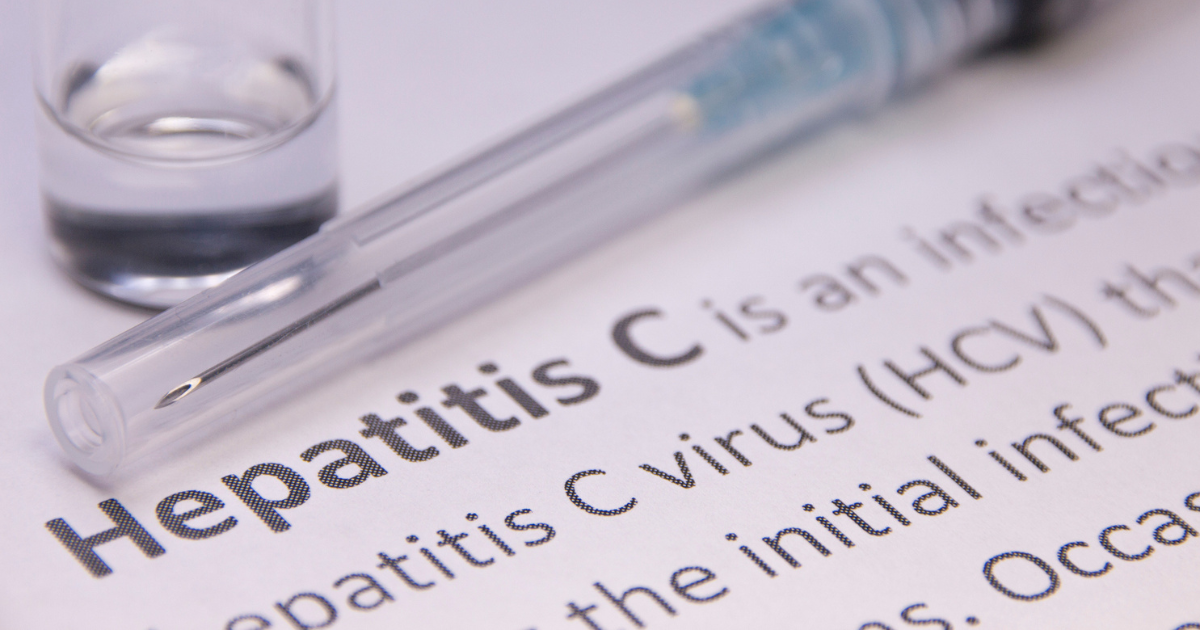What you should know about hepatitis C

What is hepatitis C and in what ways is it contracted?
Hepatitis C is primarily a disease of the baby boomer generation – people who are now in their 50s and 60s. You see, hepatitis C is a liver infection caused by a virus in the blood. It is only transferred in blood, and needles used to inject drugs are the most common causes.

In the 1960s and 1970s — and even today – people got infected by sharing needles to use drugs like heroin. Others became infected due to contaminated blood transfusions; however, since 1992, we’ve eliminated hepatitis C from the blood supply.
People wonder whether you get hepatitis C from kissing or from having sex with an infected person. Never from kissing; very rarely from sex. Of course, if skin gets broken, it’s possible to get the virus. But like any infection, a certain amount of virus has to be transferred before it has an effect, so small skin irritations won’t be enough to transfer the infection. As a general precaution, we encourage condom use for people not in a committed relationship.
What are the long-term effects?
For most people who become infected, the symptoms are barely noticeable – just a little fatigue, then it’s over and you feel fine. Very often, people don’t even know they’re infected. They can live with the virus for all those decades and not know they have it.
The problem is, hepatitis C does have long-term health implications. As you get older, they can start to show up.
With hepatitis C, it’s all about the liver. Over time, there is scarring of the liver – called cirrhosis – and the liver doesn’t function like it should. That has multiple effects on your health, although you may not really feel a difference.
The liver is necessary for digestion – breaking down nutrients in food and sending them into the bloodstream. The liver stores glucose (sugar), and breaks down harmful saturated fat and cholesterol – which helps prevent diabetes and heart disease. The liver produces proteins that help oxygen get transported throughout the body. And the liver acts as a filter, helping the body eliminate drugs, alcohol and toxins.
How would I find out if I am infected? Should I be tested?
You have two options – a blood test or an oral swab. The blood test is actually more accurate. You will have results a few days later. If you test positive for the virus, you will need a confirmation test – another blood test which measures how much virus is in your blood.
You owe it to yourself to get tested if you’ve ever shared needles. If you’ve wondered about this – or know there’s a strong possibility you’re infected – now is the time to get tested and treated.
Here’s the good news. We do have very effective treatments for hepatitis C. I talk more about that in another blog post. Believe me, you’ll feel very encouraged to get yourself tested and get treatment. It’s the best thing you can do for yourself and your family – if your goal is to live to see old age.
What happens if I have hepatitis C without knowing it and do not get treated?
You may not notice the effects, as they are subtle until you get older. The liver is a necessary part of your immunity – how well you fight disease.
When the liver is scarred, blood has a harder time getting into the liver. That means the liver can’t perform all these critical functions. And, the risk of liver cancer also goes up as you get older. This is serious. A person can die of complications from cirrhosis of the liver and liver cancer.
Some people feel the effects worse than others. Alcohol users get sicker than people who don’t drink. That’s because drinking alcohol harms the liver. Also, people who are obese are affected more.
Anyone who has had this virus for 40 or 50 years will feel the effects. The damage occurs very slowly, progressively. People who get hepatitis C infection after age 50 – they’re the ones with worst prognosis. They tend to get sick faster as the infection progresses more rapidly.
Is hepatitis C contagious?
It’s not contagious like a cold is contagious. You don’t get infected by touching or kissing, and rarely from having sex with an infected person, as I mentioned before. The infection is transferred through blood-to-blood contact, typically through needle sharing.
What’s the difference between hepatitis A, B and C?
It’s an alphabet soup, I know. A lot of people are confused. Each one of the viruses is very different. Let me walk you through it. Also, you can find information on hepatitis A, B and C on the Centers for Disease Control’s website.
Hepatitis A is very common in every country, including the U.S. Some cities, some countries, are notorious for hepatitis A risk. Check the CDC’s site to see which cities are the highest risk.
This virus is what we call a “fecal-oral virus” – which means you often get it when feces are on food. Yes, ugh! But you wouldn’t believe how often it happens. Statistics show that 30 percent of people don’t wash hands after going to the bathroom. That might be the person who prepares your food in a restaurant.
The body does have a great mechanism for getting rid of hepatitis A virus and other invaders. Your stomach creates a lot of acid to kill them. In fact, the amount of virus you ingest does matter. Your intestine is pretty tough, and able to repel most infections.
If you do get infected by hepatitis A, you’ll have a mild flu-like illness. Young children, older people or those who are immune-compromised will have a rougher illness. You may also have jaundice and dark urine, but that’s rare.
The vaccine is very effective. People who travel abroad to some areas should get hepatitis A vaccine shots.
However, if you do contract hepatitis A infection, there’s no specific treatment. The immune system will get rid of it naturally, and you will then be immune. The virus is transferable through human-to-human contact for six to eight weeks after you first become infected.
Hepatitis B is also very common, but typically more prevalent developing nations. Most people acquire hepatitis B at birth, as it is transmitted from mother to fetus. Hepatitis B is found in saliva, semen and sweat. It is very transmissible via sexual activity if you don’t have immunity. It is therefore considered a venereal disease.
Hepatitis B is also transmitted via needles. Symptoms of infection are flu-like, with jaundice, but disappear after the first few weeks. People with a chronic infection don’t likely know they have it, and can easily pass it to others. Over the years, they will develop liver cirrhosis.
Hepatitis B vaccine has been available since 1982. Since then, children in the U.S. get vaccinated as part of their regular vaccination series. Older travelers are advised to the vaccinated if visiting Mediterranean countries, Asia or Africa.
Hepatitis C, as you can see, is a very different infection – as it is primarily transmitted via needles.
Is there a vaccine for hepatitis C?
No, there is not yet a vaccine for this virus. A vaccine is now being tested in human clinical trials, but it’s not yet available to the public. People with hepatitis C should also get the hepatitis A and B vaccines, by the way.
Can hepatitis C be prevented?
To prevent hepatitis C infection, don’t share needles or use dirty needles. If you get tattoos, make sure they take safety precautions with needles. Use condoms when you have sex in an uncommitted relationship.
Who should get tested for hepatitis C virus? Why is it necessary to get treated?
People born between 1945 and 1965 are encouraged to get tested since many don’t recognize they are at risk for the disease. A simple blood test can diagnose the disease.
Not only will treatment reduce the chance for liver failure and liver cancer, the diagnosis reminds patients of the danger of alcohol use and obesity, which increase the risk of getting cirrhosis and cancer.
To make an appointment with Nebraska Medicine’s Hepatitis C Clinic, call 800-922-0000. To learn more about hepatitis C, click here.




